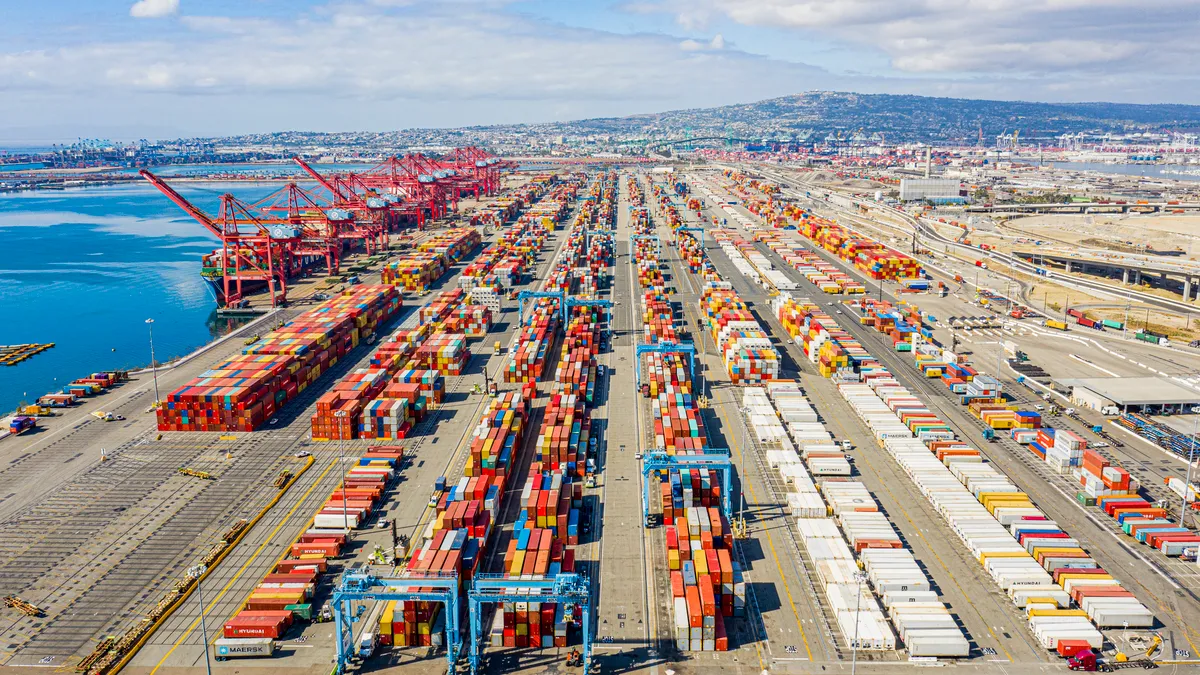Dive Brief:
- The ports of Seattle and Tacoma will join the Port of Long Beach's efforts on data sharing through its Supply Chain Information Highway, according to a press release from the Long Beach port on Thursday.
- The digital initiative was announced in December with the Port of Oakland being the first port to use it after the prototype's completion.
- Working alongside the ports of Long Beach and Oakland, the Northwest Seaport Alliance seeks to "address supply chain challenges" and increase "visibility in cargo delivery and trade opportunities along the West Coast,” John Wolfe, CEO of the alliance, said in a statement.
Dive Insight:
Data sharing has been a widely debated topic among ports in the past few years. But as the West Coast experienced congestion and vessel delays affected shippers' ability to meet demand, the lack of data became a significant hindrance.
"We are woefully deficient as an industry and a nation on the data side, and the lack of data sharing," John Porcari, U.S. port envoy and head of the Supply Chain Disruptions Task Force said at the TPM22 and TPMTech Conference produced by The Journal of Commerce in Long Beach, California.
The issue prompted the Federal Maritime Commission to create a data initiative last year which is examining shipping data to determine existing constraints that impede the flow of ocean cargo.
"In 2016, the debate was, do we share information? Everybody has proprietary interests ... 2021, now people are talking about sharing the data," Mario Cordero, executive director of the Port of Long Beach said during a conference session. "2022, for the Port of Long Beach, is the year of transformation in terms of how we do that."
The Supply Chain Information Highway aims to leverage data to improve efficiencies. It is not yet live. But the Port of Long Beach and St. Louis-based UNCOMN, its technology vendor, have been gathering and normalizing data for an initial group of stakeholders that include a marine terminal operator, transportation providers and shippers, according to the press release. Participants in the pilot were invited to share data and validate the results.
The digital platform will use "cargo data status from various sources to intersect in order to provide secure end-to-end visibility," Port of Long Beach Deputy Executive Director Noel Hacegaba said at a TPM panel discussion, according to the release. It will also "enable users to make operational decisions and plan resources."
The participation of the alliance is part of series of steps that will help extend the reach of the information highway to other West Coast ports and the nation, Hacegaba said.













